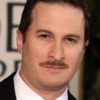Want to know what books Mat Whitecross recommends on their reading list? We've researched interviews, social media posts, podcasts, and articles to build a comprehensive list of Mat Whitecross's favorite book recommendations of all time.
1
The biography of the late, great self-made Essex lad, Ian Dury. For this book Dury co-operated with author Richard Balls who has produced a vivid portrait, illustrated with many photographs from private collections. more The biography of the late, great self-made Essex lad, Ian Dury. For this book Dury co-operated with author Richard Balls who has produced a vivid portrait, illustrated with many photographs from private collections. less 
Mat WhitecrossThere is a new biography on Ian by Will Birch that came out last month, but when I started the film the only thing that was available was Richard’s book, which luckily is very good. It’s 500 pages and it goes into lots of details, which was difficult for me as a film-maker because we were trying to make a 110-minute film. So we decided to cherry pick moments from the biography. (Source)
2

In her ground-breaking reporting from Iraq, Naomi Klein exposed how the trauma of invasion was being exploited to remake the country in the interest of foreign corporations. She called it "disaster capitalism." Covering Sri Lanka in the wake of the tsunami, and New Orleans post-Katrina, she witnessed something remarkably similar. People still reeling from catastrophe were being hit again, this time with economic "shock treatment" losing their land and homes to rapid-fire corporate makeovers. The Shock Doctrine retells the story of the most dominant ideology of our time, Milton Friedman's free... more In her ground-breaking reporting from Iraq, Naomi Klein exposed how the trauma of invasion was being exploited to remake the country in the interest of foreign corporations. She called it "disaster capitalism." Covering Sri Lanka in the wake of the tsunami, and New Orleans post-Katrina, she witnessed something remarkably similar. People still reeling from catastrophe were being hit again, this time with economic "shock treatment" losing their land and homes to rapid-fire corporate makeovers. The Shock Doctrine retells the story of the most dominant ideology of our time, Milton Friedman's free market economic revolution. In contrast to the popular myth of this movement's peaceful global victory, Klein shows how it has exploited moments of shock and extreme violence in order to implement its economic policies in so many parts of the world from Latin America and Eastern Europe to South Africa, Russia, and Iraq. At the core of disaster capitalism is the use of cataclysmic events to advance radical privatization combined with the privatization of the disaster response itself. By capitalizing on crises, created by nature or war, Klein argues that the disaster capitalism complex now exists as a booming new economy, and is the violent culmination of a radical economic project that has been incubating for fifty years. less 
George MonbiotThe Shock Doctrine explains some of the mechanisms by which patrimonial capital acquires power and enhances its wealth. It’s a brilliant piece of work, and one of those rare books that changes the way you perceive the world. (Source)

Mat WhitecrossIt starts with the theory that moments of crisis have been utilised by the right wing in the US and other countries to manipulate people into following their agenda. (Source)

Donna DickensonNaomi Klein’s argument is that capitalism actually requires deliberately engineered shocks to the economic systems. (Source)
3
The film-maker Robert Rodriguez describes how he made El Mariachi for $7000, demonstrating many ways in which a film-maker can do for nothing what professionals spend thousands of dollars doing without a second thought. more The film-maker Robert Rodriguez describes how he made El Mariachi for $7000, demonstrating many ways in which a film-maker can do for nothing what professionals spend thousands of dollars doing without a second thought. less 
Mat WhitecrossYes, I remember growing up and really wanting to be a film-maker. I didn’t understand how films were made. There wasn’t a huge amount of information at the time. It seemed like an impossible dream to go off and become a director – there was no sure-fire route. There still isn’t. I remember going to the careers adviser at school and saying I want to be a director and he pretty much laughed at me... (Source)
4

Orson Welles, Peter Bogdanovich, Jonathan Rosenbaum | 4.12
Innovative film and theater director, radio producer, actor, writer, painter, narrator, and magician, Orson Welles (1915–1985) was the last true Renaissance man of the twentieth century. From such great radio works as "War of the Worlds" to his cinematic masterpieces Citizen Kane, The Magnificent Ambersons, Othello, Macbeth, Touch of Evil, and Chimes at Midnight, Welles was a master storyteller, as expansive as he was enigmatic. This Is Orson Welles, a collection of penetrating and witty conversations between Welles and Peter Bogdanovich, includes insights into... more Innovative film and theater director, radio producer, actor, writer, painter, narrator, and magician, Orson Welles (1915–1985) was the last true Renaissance man of the twentieth century. From such great radio works as "War of the Worlds" to his cinematic masterpieces Citizen Kane, The Magnificent Ambersons, Othello, Macbeth, Touch of Evil, and Chimes at Midnight, Welles was a master storyteller, as expansive as he was enigmatic. This Is Orson Welles, a collection of penetrating and witty conversations between Welles and Peter Bogdanovich, includes insights into Welles's radio, theater, film, and television work; Hollywood producers, directors, and stars; and almost everything else, from acting to magic, literature to comic strips, bullfighters to gangsters. Now including Welles's revealing memo to Universal about his artistic intentions for Touch of Evil, (of which the "director's edition" was released in Fall 1998) this book, which Welles ultimately considered his autobiography, is a masterpiece as unique and engaging as the best of his works. less 
Mat WhitecrossOrson Welles has always been my favourite director. I remember catching films of his late at night. One of the first films I saw of his was Touch of Evil; I had never seen anything like it. And the book is incredibly inspiring. He is sitting down with his friend Peter Bogdanovich, who is another great film director, and the two of them just talk about Orson Welles’s career. Welles is a great... (Source)
5

En 1955, François Truffaut rencontre Alfred Hitchcock pour les Cahiers du cinéma. En 1962, Jules et Jim vient consacrer son talent de cinéaste et il prépare La peau douce (1964), de son aveu même le plus hitchcockien de ses films. Aux États-Unis, Hitchcock, avec Frenzy (1962), est au faîte de sa créativité et de son succès. Mais les critiques restent réticents.
Naît alors l'idée du «Hitchbook» : un livre dont Truffaut serait l'initiateur, le «provocateur» même, et qui révèlerait la vraie nature de l'homme, vulnérable, sensible, et aussi les secrets perdus que détiennent les grands... more En 1955, François Truffaut rencontre Alfred Hitchcock pour les Cahiers du cinéma. En 1962, Jules et Jim vient consacrer son talent de cinéaste et il prépare La peau douce (1964), de son aveu même le plus hitchcockien de ses films. Aux États-Unis, Hitchcock, avec Frenzy (1962), est au faîte de sa créativité et de son succès. Mais les critiques restent réticents.
Naît alors l'idée du «Hitchbook» : un livre dont Truffaut serait l'initiateur, le «provocateur» même, et qui révèlerait la vraie nature de l'homme, vulnérable, sensible, et aussi les secrets perdus que détiennent les grands cinéastes qui ont commencé à l'époque du muet.
Hitchcock accepte le principe de répondre à 500 questions portant exclusivement sur sa carrière. Pendant cet entretien qui va durer 4 ans, Truffaut va l'interroger à la façon dont Œdipe allait consulter l'Oracle. Il tentera d'élucider à travers toute l'œuvre de Hitchcock les mécanismes de ce «langage d'émotion» qui est le ressort de son style inimitable et le classe dans la catégorie des «artistes inquiets comme Kafka, Dostoïevski ou Poe». less 
Darren AronofskyThis book is an amazing guide to Hitchcock’s thought process…Truffaut got Hitchcock to reveal a lot of the different techniques that he used to put together his monumental body of work. (Source)
Don't have time to read Mat Whitecross's favorite books? Read Shortform summaries.
Shortform summaries help you learn 10x faster by:
- Being comprehensive: you learn the most important points in the book
- Cutting out the fluff: you focus your time on what's important to know
- Interactive exercises: apply the book's ideas to your own life with our educators' guidance.


